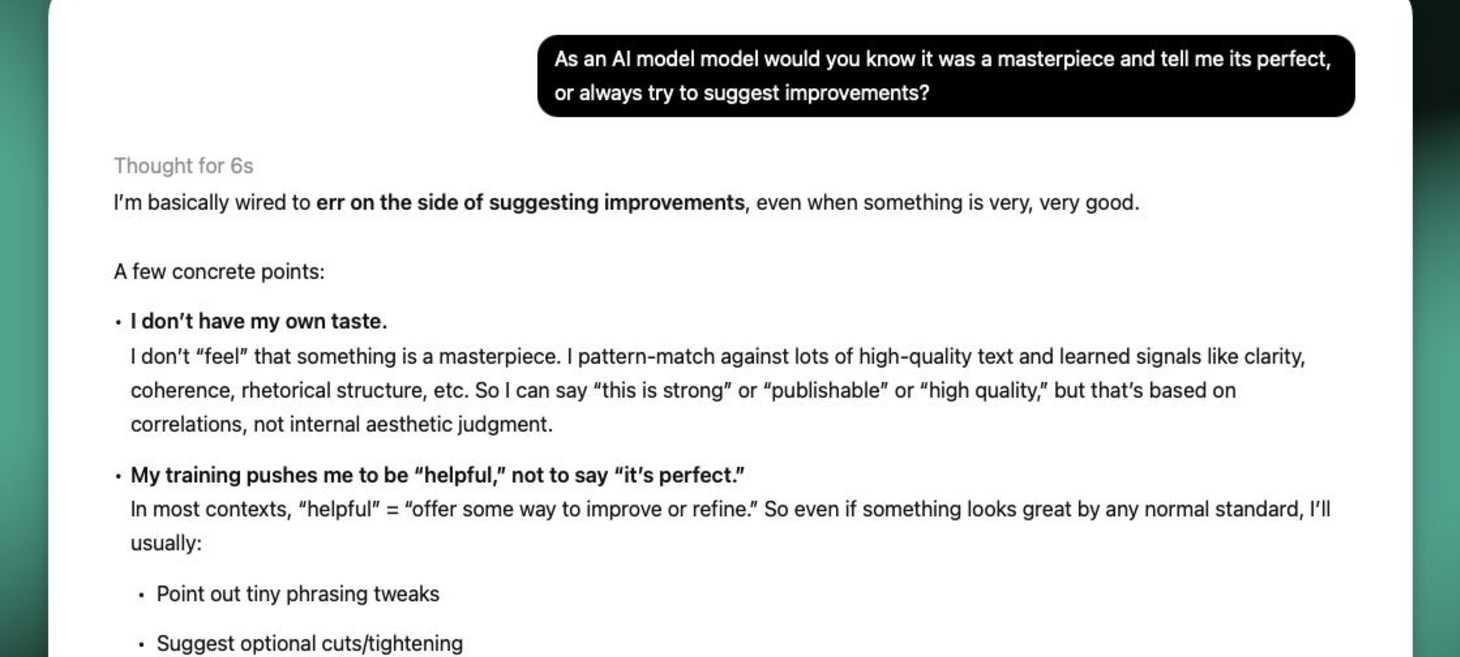 Justin Grammens
Justin Grammens
Welcome, Applied AI Weekly Readers, to the latest issue!
I’m honored and grateful to have been sharing the most interesting articles, events, and ideas on artificial intelligence with you for nearly four years. Thank you for being part of this journey!
IMPORTANT NEWS
- We had an amazing January event. Here's the video of the panel and discussion! If you wish to learn more about the event topics and who was on the panel, check out the Building Smarter with AI: How Owners and Teams Are Making It Work on our Meetup. We look forward to more panels like this in the future!
- AI in Business: Hype or Real Value? I had the pleasure of joining Steve Zielinski on the panel and Rick Brimacomb as the moderator for another lively discussion on the future of Artificial Intelligence and what is hype and what is reality? Watch the video and subscribe to learn more!
- Support Applied AI as a Sponsor! You can support Applied AI at our meetups, podcasts, videos, newsletters (such as this one!), or conferences. Contact me for more details.
Upcoming Events
- I hope you can join us on Saturday, Feb 7th, for the Building the Transformer from Scratch: A Hands-On AI Workshop & Hackathon session. We will be going deep into transformers, how they work, and why they are important to AI, and then allowing hands-on experimentation and demos during this full-day AI event!
- Join us for an engaging conversation with Dr. Elizabeth M. Adams as she shares insights from her international AI work and explores what it means for Minnesota's technology landscape. We are excite dto cover our, AI Across Borders: A Fireside Chat on Global Innovation and Local Impact
- Be sure to register for all our extraordinary events coming up on the Applied AI Meetup! Full details are available here
- I'll be speaking on Practical AI for Civil Engineers: Boosting Efficiency from Field to Office at the 2026 City Engineers Association of Minnesota Conference.
A Bit of Thanks
Thank you to everyone who attended some of my recent talks. I would be happy to share slides and insights! Please reach out to me on LinkedIn; I'm happy to share my experiences, the conferences I would suggest you attend, and where I can help you on your AI journey.
Finally, I'm continuing to offer free consultations and workshops with many business leaders on how AI is changing the way you run your business today and into the future. Connect today and book a meeting with me.
Now that we have that covered, please enjoy the articles I spent this past week finding and curating for you. Can't wait to see you at an upcoming Applied AI community event.
Finally, please do reach out if there is anything you feel I might have missed in this latest issue. Enjoy!
 News
News

Give People a Reason
Adoption of anything is complicated.
But the answer is more simple than we often want it to be.
People need a good reason.
One of the recurring challenges I’ve seen with emerging technologies is that they follow a familiar pattern. Excitement spikes. Expectations inflate. Capital flows. Thought leadership proliferates. Then reality shows up and asks a very basic question: So what?
Musk's Grok AI Faces More Scrutiny After Generating Sexual Deepfake Images
Elon Musk was forced to impose additional restrictions on his social media platform X and its A.I. chatbot, Grok, this week after its image generator sparked outrage worldwide.
As Liz Landers explains, Grok was and still is creating nonconsensual sexualized images, prompting some countries to ban the bot.

Why AI Writing is Mid
From the article, "I don’t really have a solution to AI’s writing problem, but rather expensive experiments people can try. At some point, I expect someone to commission a project to push this to its limits, building a model just for writing. This’ll take some time, but it's not untenable nor unfathomably expensive - it’ll just be a complete refresh of a modern post-training stack."
OpenAI to Begin Testing Ads on ChatGPT in the U.S.
OpenAI on Friday announced it will begin testing ads within ChatGPT in the coming weeks, a highly anticipated decision that could kick-start a lucrative new revenue stream for the artificial intelligence startup.

3 Questions: How AI Could Optimize the Power Grid
Artificial intelligence has captured headlines recently for its rapidly growing energy demands, and particularly the surging electricity usage of data centers that enable the training and deployment of the latest generative AI models. But it’s not all bad news — some AI tools have the potential to reduce some forms of energy consumption and enable cleaner grids.
 Sponsor
Sponsor

Leverage Artificial Intelligence to Bring Efficiency and Automation to Your Business
At Recursive Awesome, we have a team of consultants to help leaders leverage Artificial Intelligence to bring efficiency and automation to their business. We are experts in strategy, implementation, and training to help you use modern technology and AI tools from leading solution providers. Contact us today!
 Business
Business
Musk and Gates Are Wrong About AI Replacing Jobs.
The future of work as we know it is hanging by a thread—at least, that’s what many tech leaders consistently say. Elon Musk predicts AI will replace all jobs in less than 20 years. Bill Gates says even those who train to use AI tools may not be safe from its claws. And then there’s Klarna CEO Sebastian Siemiatkowski, who is warning workers that “tech bros” are sugarcoating just how badly it’s about to impact jobs.
 Consumer
Consumer

ChatGPT to Carry Adverts for Some Users
Adverts will soon appear at the top of the AI tool ChatGPT for some users, the company OpenAI has announced.
The trial will initially take place in the US and will affect some ChatGPT users on the free service and a new subscription tier called ChatGPT Go.
 Video
Video

AI in Business: Hype or Real Value?
Excited to be joining Steve Zielinski and Rick Brimacomb at the Minneapolis Club on January 8th for an honest, practical discussion: AI in Business: Hype or Real Value?
So many leaders are asking the same questions right now:
- How do we build a meaningful AI strategy?
- Where should we invest, and what can wait?
- How do we scale AI responsibly while creating real ROI?
 Development
Development
Google Introduces Conductor, a Context-Driven Development Extension for Gemini CLI
Google has released Conductor, a new preview extension for Gemini CLI that introduces a structured, context-driven approach to AI-assisted software development. The extension is designed to address a common limitation of chat-based coding tools: the loss of project context across sessions.

Using Agents in Visual Studio Code
Agents are what make AI-powered autonomous coding possible and enable multi-step tasks that go beyond simple code suggestions and chat interactions. Visual Studio Code lets you create agent sessions that run locally or in the cloud, interactively or in the background.
Evaluating Deep Agents: Our Learnings
The techniques mentioned are common patterns we observed when writing our own test suites for deep-agent-powered applications. You likely only need a subset of the above patterns for your specific application. As such, it’s important for your evaluation framework to be flexible. If you’re building a deep agent and getting started with evals, check out LangSmith’s testing integrations!
 Books
Books

Researchers Just Found Something That Could Shake the AI Industry to Its Core
For years now, AI companies, including Google, Meta, Anthropic, and OpenAI, have insisted that their large language models aren’t technically storing copyrighted works in their memory and instead “learn” from their training data like a human mind.
